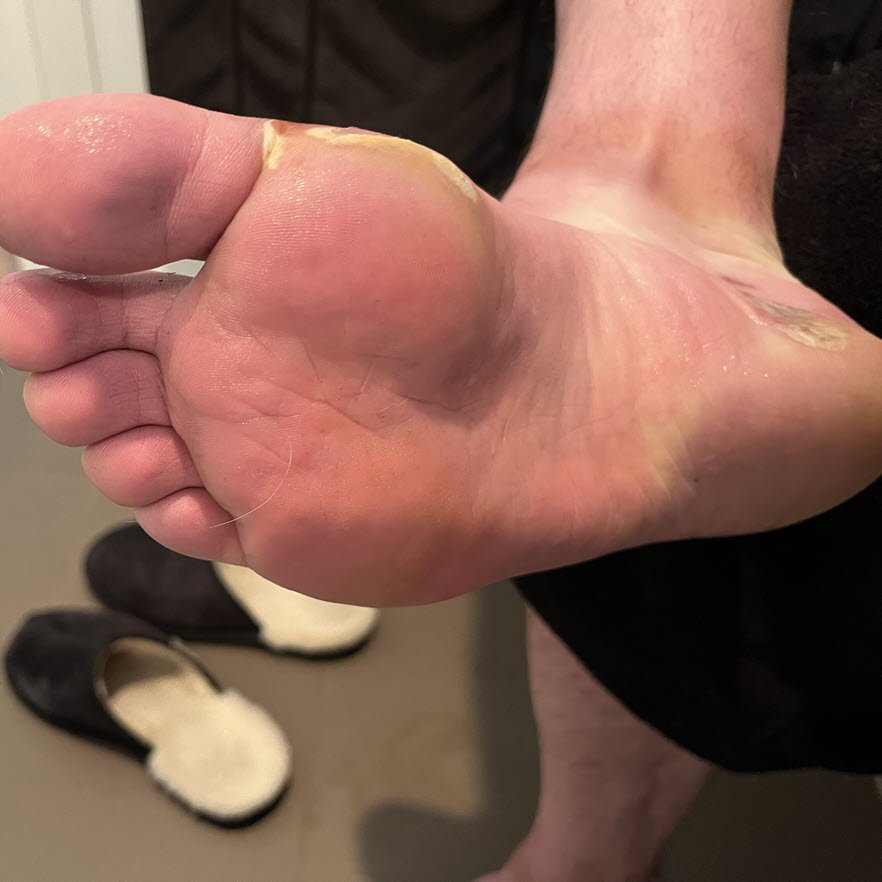Professional Dermatology Solutions for Treatment of Hyperhydrosis of Hands: Comprehensive Guide
Professional Dermatology Solutions for Treatment of Hyperhydrosis of Hands: Comprehensive Guide
Blog Article
Comprehending the Origin Reasons of Excessive Sweating and Its Effect On Daily Life
While it is commonly understood as a physical reaction to regulate body temperature level, the triggers for too much sweating can differ commonly amongst people, incorporating not just physical factors but emotional and also emotional components. By delving right into the root creates of hyperhidrosis and discovering its diverse effects, a much deeper understanding of this prevalent issue can be gained, losing light on the intricacies that individuals grappling with extreme sweating browse on an everyday basis.
Physiology of Sweat Glands
The policy of sweat manufacturing, an important physiological process, is largely controlled by the activity of sweat glands distributed across the human body. Sweat glands are classified right into two primary kinds: eccrine and apocrine glands.
When the body temperature rises, either due to physical task, high temperature levels, or psychological stress, the anxious system activates the sweat glands to generate sweat. This sweat is made up primarily of water and electrolytes like sodium and chloride. The procedure of sweat production is vital for preserving the body's internal temperature level within a slim, optimal array, highlighting the essential duty sweat glands play in human physiology.
Triggers for Excessive Sweating
In recognizing the origin triggers of excessive sweating, it is vital to recognize the triggers that can lead to this physiological response. Extreme sweating, likewise understood as hyperhidrosis, can be triggered by different aspects, both environmental and physiological. One common trigger is emotional tension or anxiety, which can stimulate the body's sweat glands to produce even more sweat than is essential for cooling down. Physical effort, high temperature levels, and spicy foods are likewise understood to set off excessive sweating in people vulnerable to this problem. Additionally, specific medical conditions like hyperthyroidism, menopause, or diabetes mellitus can add to too much sweating also.
Furthermore, drugs such as some antidepressants, opioids, and specific supplements can also work as triggers for hyperhidrosis. Understanding these triggers is essential in taking care of extreme sweating effectively - Treatment for hyperhydrosis of hands. By determining and addressing the certain triggers that prompt extreme sweating in a specific, doctor can develop tailored treatment strategies to reduce this problem and boost the person's quality of life
Medical Conditions Associated
Related to too much sweating are numerous clinical problems that can intensify this physiological response. One common condition is hyperhidrosis, a condition identified by abnormally enhanced sweating that goes beyond the body's thermoregulatory requirements. This can show up in focal areas like the hands, soles, underarms, or face, influencing a person's quality of life as a result of social humiliation and pain.
Moreover, endocrine conditions such as hyperthyroidism, diabetes mellitus, and menopausal warm flashes can additionally lead to extreme sweating. Hyperthyroidism triggers an overflow of thyroid hormonal agents, increasing metabolic process and activating sweating.
Moreover, infections like hiv, consumption, and endocarditis have been connected with night sweats, an usual symptom recognized to disrupt sleep and influence general health. These medical problems highlight the diverse variety of underlying factors that can add to excessive sweating, demanding thorough assessment and management by healthcare professionals.
Emotional and psychological Variables

Influence On Social Interactions
Too much sweating can have profound effects on go to this web-site a person's ability to involve comfortably in social communications. The noticeable signs of sweat spots or damp patches on clothes can cause humiliation and self-consciousness, causing individuals to take out from social scenarios. This withdrawal can influence partnerships, limit social tasks, and prevent individual and expert development.

Furthermore, the anxiety and self-esteem issues stemming from too much sweating can affect interaction and interpersonal skills. People may have a hard time to focus on discussions, take part in group activities, or share themselves confidently. This can bring about sensations of isolation and loneliness, as social connections come to be testing to maintain.
Final Thought

While it is commonly understood as a physiological feedback to regulate body temperature, the triggers for too much sweating can differ commonly among individuals, including not only physical elements check my blog but likewise psychological and psychological aspects. By diving right into the origin triggers of hyperhidrosis and discovering its diverse impacts, a much deeper understanding of this prevalent problem can be obtained, losing light on the complexities that individuals grappling with extreme sweating browse on an everyday basis.
Physical physical effort, high temperature levels, and spicy foods are also recognized to trigger too much sweating in people vulnerable to this condition. By recognizing and attending to the specific triggers that prompt too much sweating in a private, healthcare companies can create customized therapy strategies to minimize this condition and boost the person's quality of life.
Too much sweating can have extensive impacts on an individual's ability to engage conveniently in social communications.
Report this page